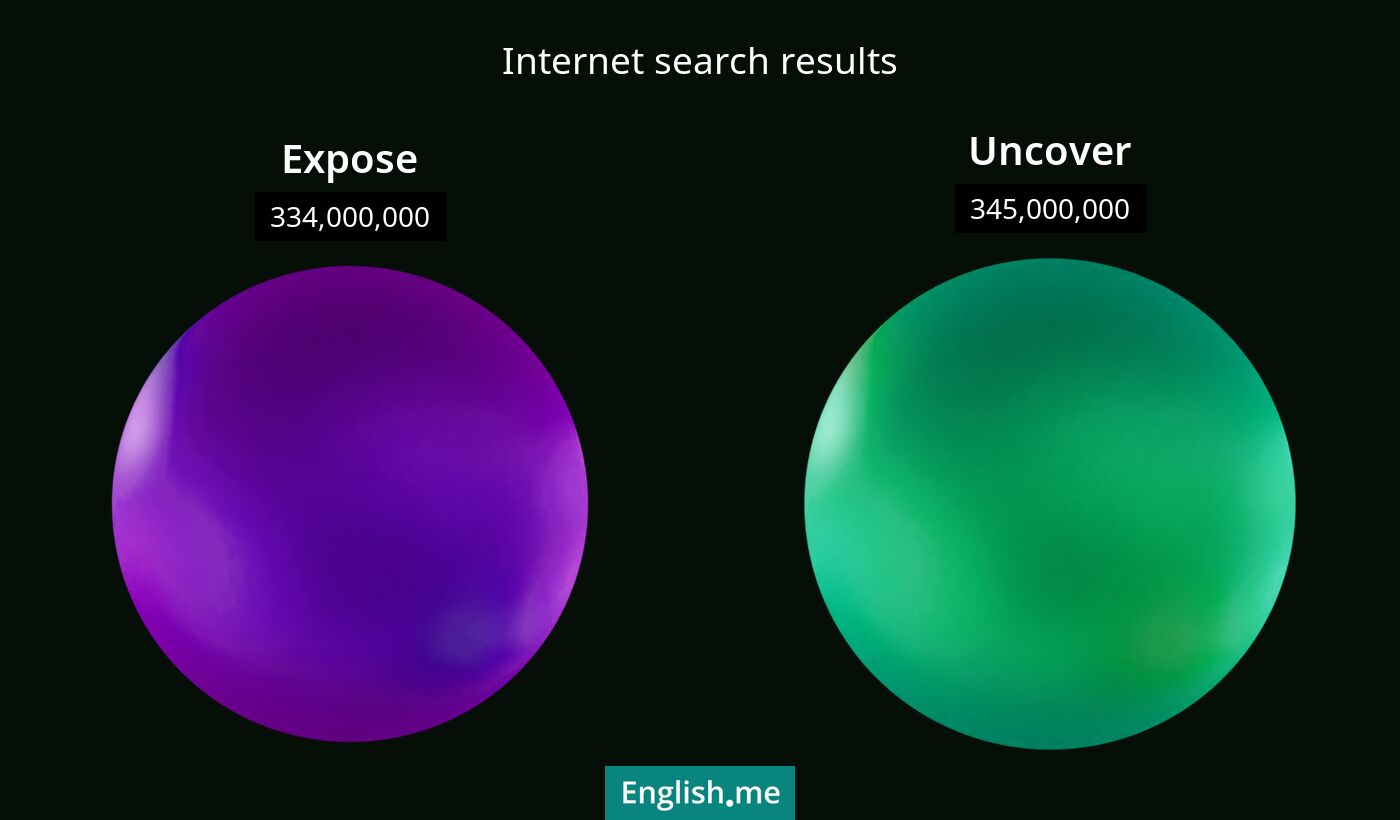Revealing the layers: "expose" vs. "uncover"
Reviewed and edited by  Anwar Kareem 31/10/2024, 07:41
Anwar Kareem 31/10/2024, 07:41
English.me team member

 What is similar?
What is similar?
Both "expose" and "uncover" involve revealing or making something visible that was previously hidden or unknown.
 What is different?
What is different?
While both words imply revealing, "expose" often carries a connotation of making something vulnerable or subject to scrutiny, and it can imply intention or purpose in revealing. "Uncover" is more neutral and often suggests the act of discovery or removing a cover without the implication of intentional exposure.
 Which one is more common?
Which one is more common?

 Examples of usage
Examples of usage
Expose- The journalist aims to expose the corruption in the government.
- Sunlight can expose sensitive skin to harmful UV rays.
- The artist decided to expose the raw emotions in her work.
- The archaeologists were able to uncover ancient ruins.
- The investigation helped uncover the truth behind the incident.
- She managed to uncover a secret recipe handed down for generations.

 English
English español
español française
française italiano
italiano deutsche
deutsche 日本語
日本語 polski
polski česky
česky svenska
svenska Türkçe
Türkçe Nederlands
Nederlands